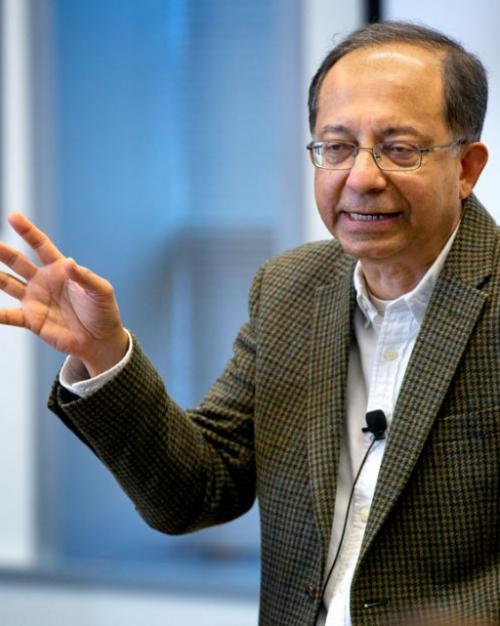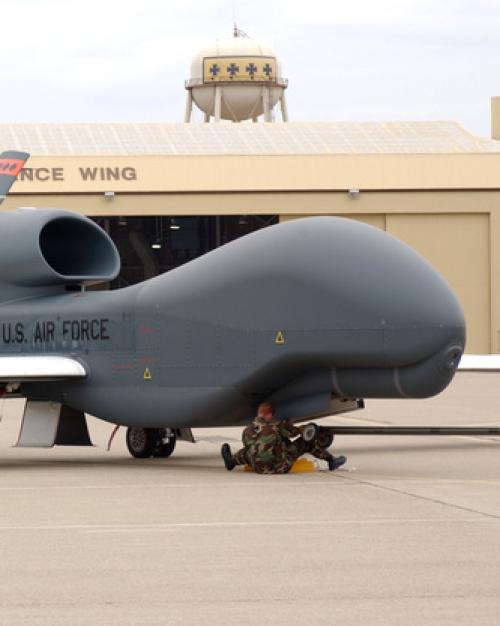Armed drone strikes earn more public support and legitimacy when they have international approval from organizations such as the United Nations, according to a survey conducted by a team of Cornell researchers.
Drones that carry weapons are increasingly employed as counterterrorism tools, but nations use and constrain strikes differently. France, for example, submits its strikes to the U.N. for approval; the U.S. typically does not.
This difference matters when it comes to public support and perceptions of legitimacy, according to doctoral students Paul Lushenko and Shyam Raman, and Sarah Kreps, the John L. Wetherill Professor of Government in the College of Arts and Sciences and a professor in the Cornell Jeb E. Brooks School of Public Policy.
The researchers cite as examples two drone strikes in 2021. France used a drone to kill Adnan al-Sahrawi, the Islamic State’s leader in western Africa. Soon after, the U.S. used drones to kill two al-Qaida leaders in Syria.
While the weapons were similar, the approaches were not. France went to the U.N. in advance to secure backing; the U.S. acted unilaterally.
To find out which approach has greater public support and legitimacy, the researchers conducted a survey of a representative sample of 1,800 respondents in France and the U.S. The results were statistically significant and showed greater cross-national support and legitimacy when drone strikes had international approval and were perceived to comply with international law.
Respondents’ homeland did play a factor, however. French respondents found any unilateral strike by their country or another to be less legitimate. Americans perceived unilateral strikes by their own country as more legitimate and more worthy of support. Together, these results suggest Americans and French citizens endorse unique patterns of drone warfare.
The researchers show that the “French model” of drone warfare is based partly on international authorization, which is the case for French counterterrorism strikes in western Africa.
“Despite the proliferation of armed drones globally, we lack an understanding of public attitudes for strikes, especially in a cross-national context,” Lushenko said. “Our research shows that the public’s perceptions for legitimate strikes are not merely a function of the target. The perceived legitimacy of strikes can be shaped by who uses drones and how they are constrained, suggesting that international authorization through the U.N. has important implications in the battle for public opinion.”
Lushenko is a Ph.D. candidate in the field of international relations, and a General Andrew Jackson Goodpaster Scholar. Raman is a PhD student in the field of policy analysis and management. An article about their research, “Multilateralism and Public Support for Drone Strikes,” was published in the April edition of Research and Politics.
Jim Hanchett is assistant dean of communications in the Cornell Jeb E. Brooks School of Public Policy.




